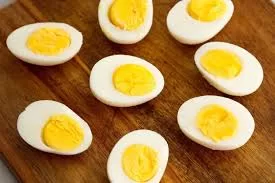Forget the pressure of New Year’s resolutions made in the depths of winter. Experts suggest a more natural approach: spring resolutions. As the days lengthen and the sun returns, our bodies are primed for change, making it the ideal time to adopt healthier habits.
“Why struggle with a new diet or exercise routine when your energy levels are at their lowest?” asks experts from The Conversation. “Winter’s lack of sunlight can lead to low energy and mood, making it a challenging time to implement significant lifestyle changes.”
Just like animals that hibernate, humans experience a slowdown during winter. Metabolism can decrease, sleepiness increases due to heightened melatonin, and mood may plummet, sometimes leading to Seasonal Affective Disorder (SAD). This natural slowdown clashes with the unrelenting demands of daily life, leaving many feeling “stressed out” and unable to cope.
“January and February often pass in a blur,” experts explain. “We’re trying to adhere to resolutions while still battling winter lethargy. It’s simply bad timing.”
However, the arrival of March brings renewed hope. The sun’s return triggers a biological awakening, making those previously daunting resolutions seem more attainable. Instead of dwelling on missed January goals, experts advocate for embracing “gentle spring resolutions.”
“Remember, your body has been under-resourced for months,” they caution. “Start small and gradually build momentum.”
Here are some suggested spring resolutions:
- Move for 20 minutes a day: Whether it’s a brisk walk, a run, or simply chasing after children, any movement counts.
- Drink plenty of water: Hydration is essential for optimal bodily function.
- Spend at least ten minutes in the sun: Especially in the morning, sunlight helps regulate sleep patterns and boosts mood.
The key to successful spring resolutions is simplicity and achievability. By aligning our goals with the natural rhythms of the season, we can cultivate lasting healthy habits.
Disclaimer: This article provides general information and should not be considered medical advice. Individual results may vary, and it’s essential to consult with a healthcare professional before making significant lifestyle changes. The information provided is based on expert analysis provided by The Conversation.(The Conversation )












